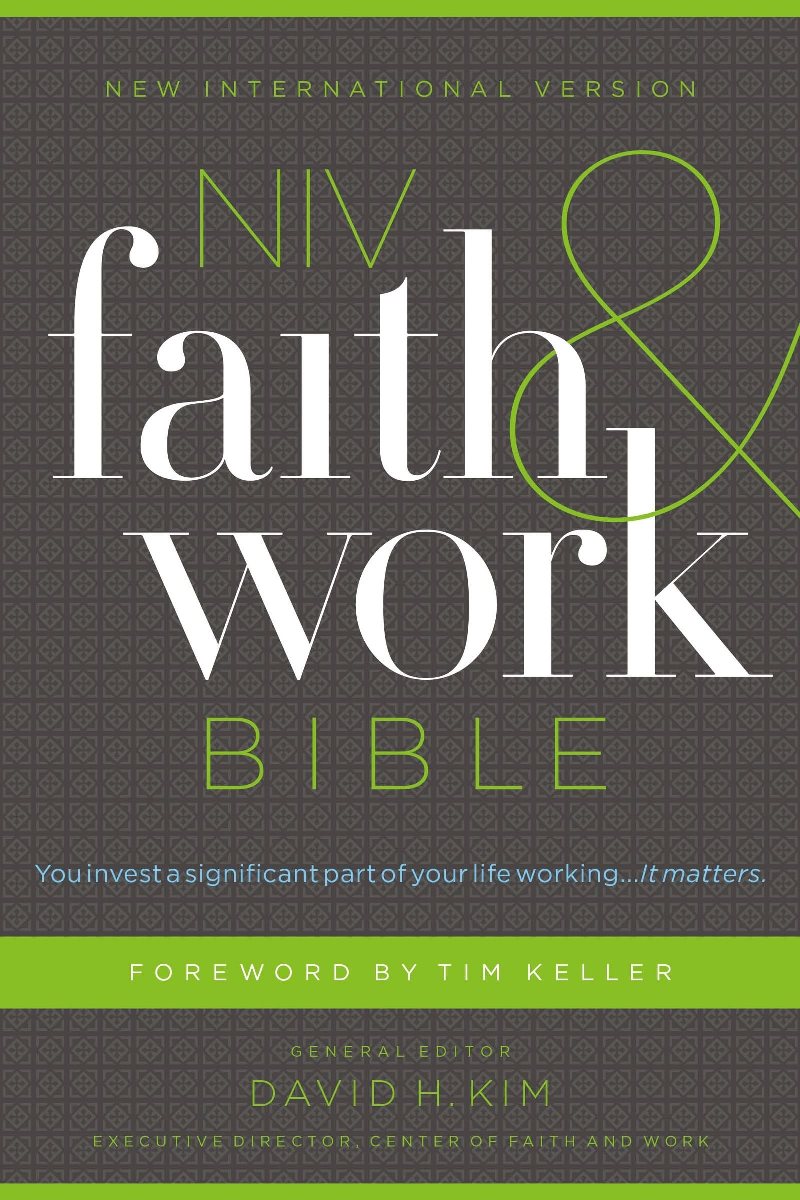 The church has recently awakened with renewed interest in the intersection of faith and work, leading to a widespread movement in congregations and seminaries and a constant flow of books, sermons, and other resources (including a hearty bunch from the Acton Institute).
The church has recently awakened with renewed interest in the intersection of faith and work, leading to a widespread movement in congregations and seminaries and a constant flow of books, sermons, and other resources (including a hearty bunch from the Acton Institute).
In a new NIV Faith and Work Bible from Zondervan, we gain another valuable tool for expanding our economic imaginations, weaving a rich theology of work more closely with the Biblical text.
Edited by David H. Kim, Executive Director for the Center for Faith and Work, and including a foreword by Tim Keller, the Bible offers a range of pathways and commentaries to assist Christians in connecting the dots between their daily work and the Biblical story.
Kim describes the Bible as a “unique and exciting combination of doctrine, application, and community experience,” with the goal of developing a theology of work that “will hopefully rewire the way you understand the gospel and how it has everything to do with your work.”
To accomplish this, the Bible includes, among other things, (1) specific introductions to each book that highlight key lessons and applications to work and economics; (2) a “storylines” feature that serves as an introductory study for those new to the Bible); (3) essays on doctrine as it relates to stewardship (e.g. dominion in Genesis); (4) historical writings written after the Bible; and (5) real stories of application in daily/modern life.
To make sense of each and tie bigger biblical themes to work and economics, the Bible retains a focus on how the gospel redeems and transforms our motivations, relationships, and world. Kim explains how the paradigm translates to work as follows.
1. Redemption of Our Motivations
Starting with our motivations, the gospel challenges the reasons why we work. For most people, the surface-level answer to the question of why we work is to make a living. …The gospel transforms all of our motivations so that we may work to bring God glory, and so that when others see the work of our hands – whether that be a brilliantly designed spreadsheet, a perfectly brewed cup of coffee or a well-nurtured child – they might gaze upon and experience a tangible expression of who God is. Work, therefore, provides an incredible opportunity to share the gospel – to name the God to whom this work ultimately points, and to explain the splendor and magnificence of his redemptive work in Christ.
2. Redemption of Our Relationships
The gospel transforms our relationships in such a way that we can begin to honor everyone we encounter, knowing that they too are created in God’s image…When people are treated as wonder-filled expressions of God and his immense creativity and handiwork, then work – where people spend most of their waking hours – can be transformed to provide a meaningful context for people to flourish.
3. Redemption of Our World
How does the gospel transform the world through our work? Throughout western history, the church, in caring for its constituents, created new organizations and moved into new sectors of business and society, from social service nonprofits to healthcare to educational institutions…Society as we know it today has been shaped and significantly influenced by faithful Christians living out their faith in their daily work. For many, unbeknownst to them, God has been at work through them to renew larger societal structures in our world.
This filter, applied across the text, offers a marvelous picture of God’s story for stewardship from Genesis to Revelation. For those interested in gaining a better sense of how our theology of work builds and unfolds throughout the Scriptures, I highly recommend it.
Purchase the NIV Faith & Work Bible.

